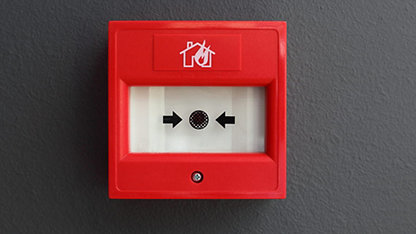How can EWS training help surveyors obtain PII?
A major issue acutely affecting chartered surveying firms today is a lack of affordable professional indemnity insurance (PII). A reduced supply of PII, significant increases in premiums, and an increased use of fire safety exclusions have created a backlog in the housing and construction markets, while surveyors face potential exposure to fire safety insurance claims.
In December 2019, RICS published the external wall system (EWS 1) form, to help surveyors assess whether the exterior of a residential building may contain combustible cladding or insulation and whether remedial action may be needed – the cost of which may affect value.
With only 300 or so qualified EWS assessors in the UK, it is clear that surveyors need sufficient training to obtain adequate PII and to create additional capacity in the market.
Why is the cost of PII going up?
PII is significantly affected by inflation. The impact of Brexit and the COVID-19 pandemic has raised costs in supply chains, fuel, and labour, causing sizeable project cost overruns in the construction sector, in turn raising concerns of potential negligence among insurers. PII has also been unprofitable for many years, as highlighted by the Lloyds review in 2017.
The Grenfell Tower fire in 2017 has also brought construction market premiums in the sector under the scrutiny of insurers. High claims activity around cladding designs and products has exposed many properties that do not comply with the Building Regulations, complicating the process of designing, constructing, managing, inspecting and valuing high-rise buildings
Insurers who underwrite PII cannot now exclude fire safety claims on a property of four storeys or lower, and must demand fire safety coverage, as a minimum, on an aggregate basis inclusive of defence costs. This has caused premiums across the market to soar and excesses to increase.
How can we mitigate these costs?
RICS has amended its minimum terms to allow surveyors to protect themselves and their clients when undertaking fire safety work, while acknowledging insurer concerns about fire safety in the housing and construction markets.
As PII premiums now restrict the cover that surveyors can obtain, it is essential that they can provide insurers with full details of the risk management procedures they have in place, and the work they have done to reduce the risk of claims arising from such activity.
It is especially important given that insurers can place an aggregate limit on indemnity that allows for round-the-clock reinstatements, meaning each layer of indemnity will step down as its underlying layer is exhausted.
To mitigate these costs, surveyors should:
- inspect the proposed terms of a policy to ensure they leave no gaps in cover, and understand how they will respond to multiple claims
- purchase an excess or increased layer of insurance under their existing excess layer, as primary-layer insurers seek to delay reinstating cover under their policy
- contact their brokers and insurers much earlier when arranging policies, to avoid a last-minute rush or having to revert to the assigned risk pools for short-term cover. We recommend at least 3 months in advance.
- undertake training in EWSs and become qualified to carry out fire safety work at their level of appointment.
How can EWS training help?
Surveyors who are qualified EWS assessors can detect and present risk factors in accordance with PAS9980. Such qualification gives surveyors a comprehensive understanding of the legal and regulatory standards for EWS inspections, and shows insurers they can:
- identify where an EWS inspection is required
- demonstrate the rationale for the inspection
- display sufficient knowledge of different types of material and cladding, and consideration of their associated risks.
The use of EWS1 forms is expected to continue in the construction industry. Many professionals will need support in using these forms if they are not qualified to carry out an EWS assessment.
RICS’ Built Environment Journal offers advice for using EWS1 forms, including forms prepared by third parties.
Learn how EWS upskilling can help at our annual conference
To ensure chartered surveyors have the necessary skills to complete EWS assessments, and prevent further decline in the PII market, RICS has launched an EWS assessment training programme. This will give chartered surveyors surety that they can obtain adequate PII, and will create additional capacity in the market. Professionals can sign up for the programme online.
The need for surveyors to obtain PII puts EWS centre stage and demands greater understanding than ever before. The annual RICS UK Building Surveying Conference will include a discussion on EWS training, as well as:
- an exchange of leading building surveying knowledge, experience, and professional insight
- live sessions and access to recorded events
- opportunities to network and interact













